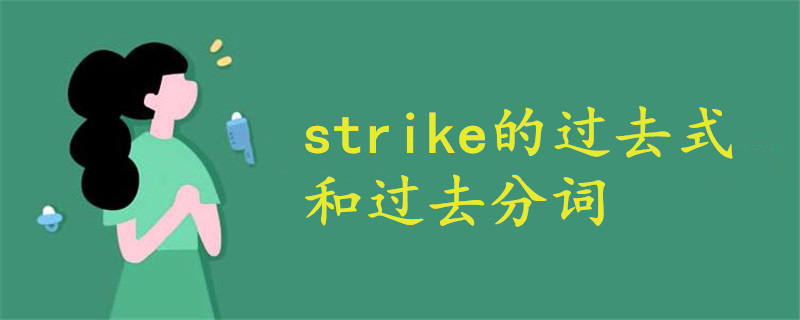strike的过去式为struck或strook,过去分词为struck或stricken。strike可作动词和名词,作为动词时,意思有“撞”、“碰”、“打”、“踢”;作为名词时,意思有“罢工”、“军事进攻”、“袭击”、“空袭”等。

strike的基本释义及用法介绍
1、当strike作为动词时,意为撞;碰;撞击;碰撞;打;击;击打,踢(球等)。其第三人称单数为strikes,现在分词为striking,过去式为struck或strook,过去分词为struck 或stricken。
例句:The tree was struck by lightning .
树遭到雷击。
He struck the table with his fist.
他用拳头打桌子。
He walked up to the penalty spot and struck the ball firmly into the back of the net.
他走到罚球点,稳稳地把球踢入网内。
Police fear that the killer may strike again.
警方担心杀人犯可能再次下手。
Two days later tragedy struck.
两天后悲剧发生了。
An awful thought has just struck me.
刚才我脑子里突然闪过一个可怕的念头。
The windows sparkled as the sun struck the glass.
阳光照得玻璃窗熠熠闪光。
2、当strike作为名词时,意为罢工;罢课;罢市;军事进攻;袭击;(尤指)空袭;击;打;踢。其复数形式为strikes。
例句:Air traffic controllers are threatening to come out on/go on strike .
空中交通管制员威胁要举行罢工。
They decided to launch a pre-emptive strike .
他们决定发动先发制人的攻击。
His spectacular strike in the second half made the score 2–0.
他在下半场令人叹为观止的一脚射门把比分改写为2:0。
The amount of fuel that this car uses is a big strike against it.
耗油量大是这辆车的一大缺点。










